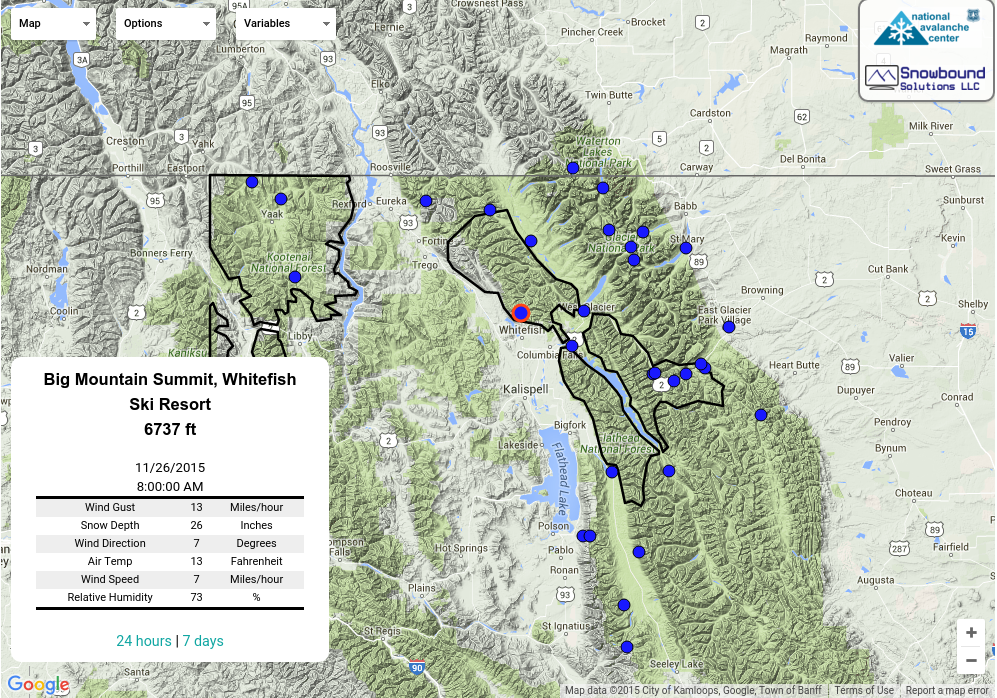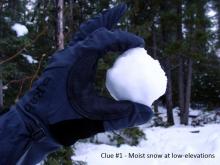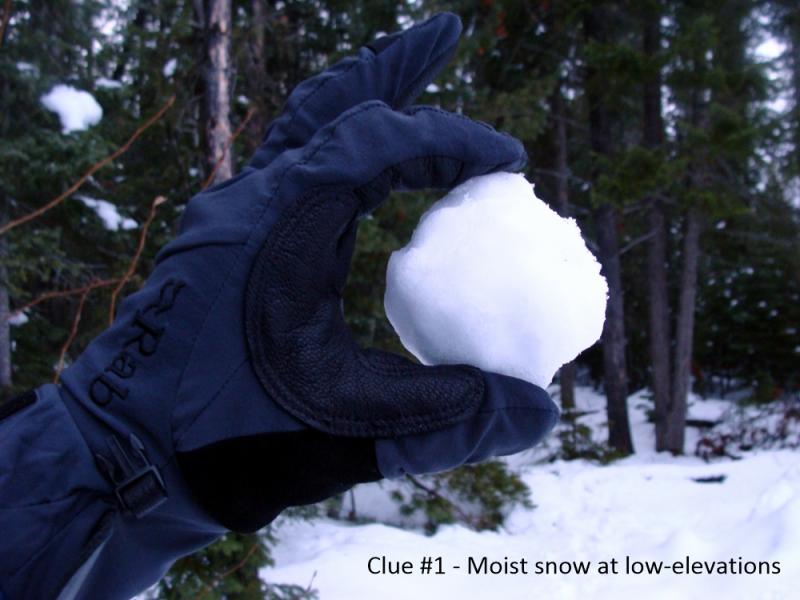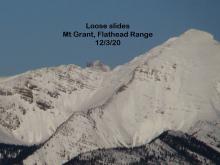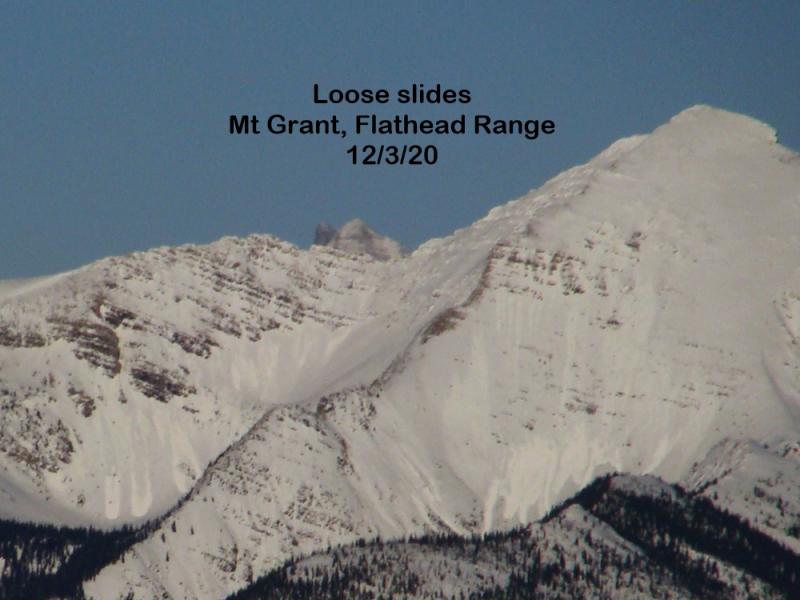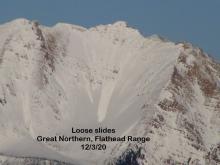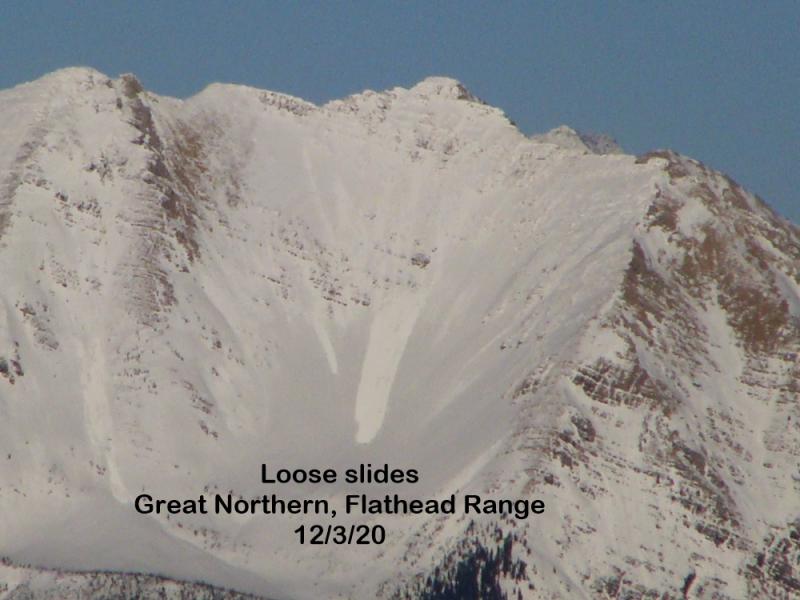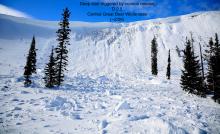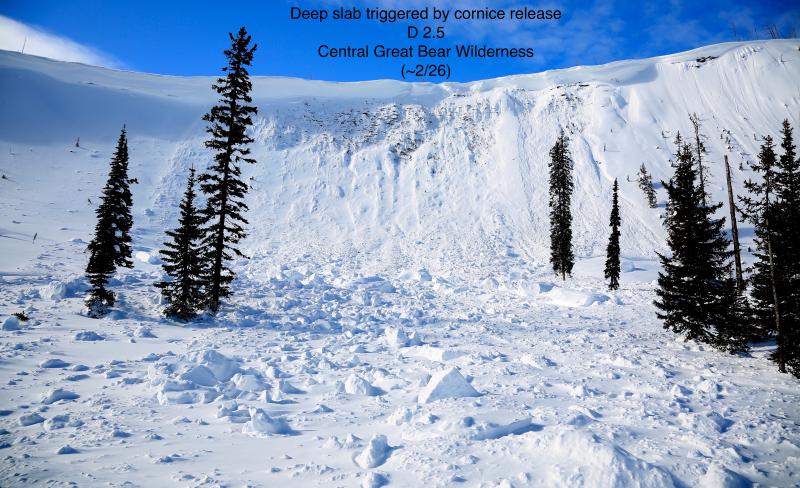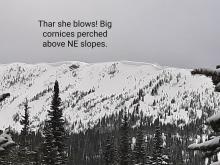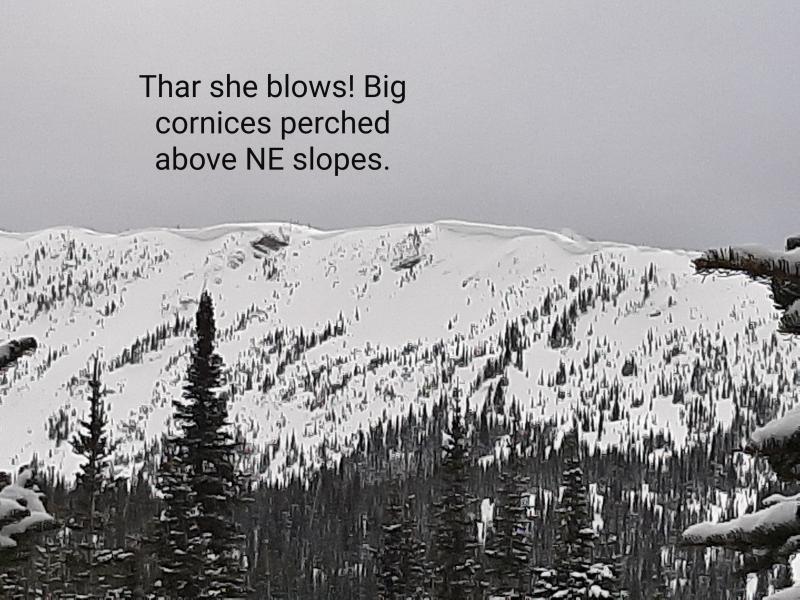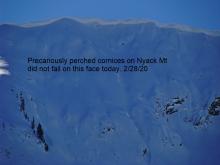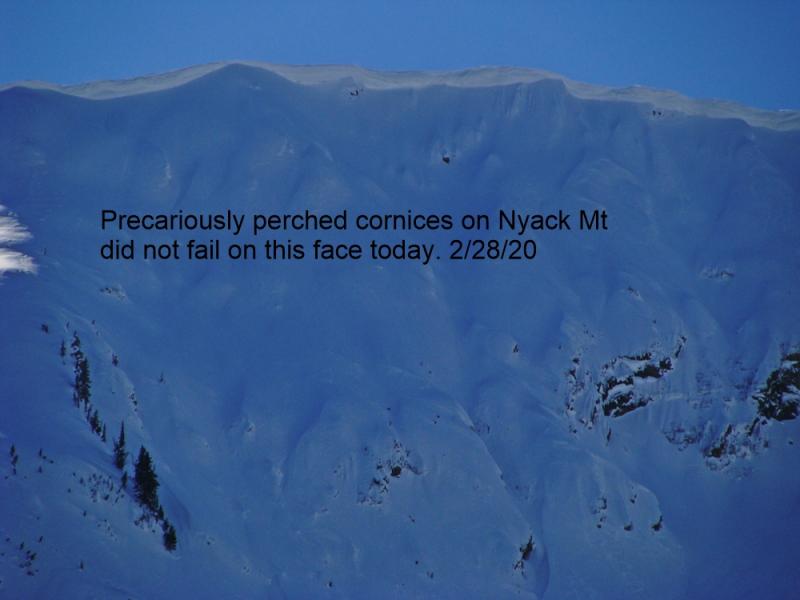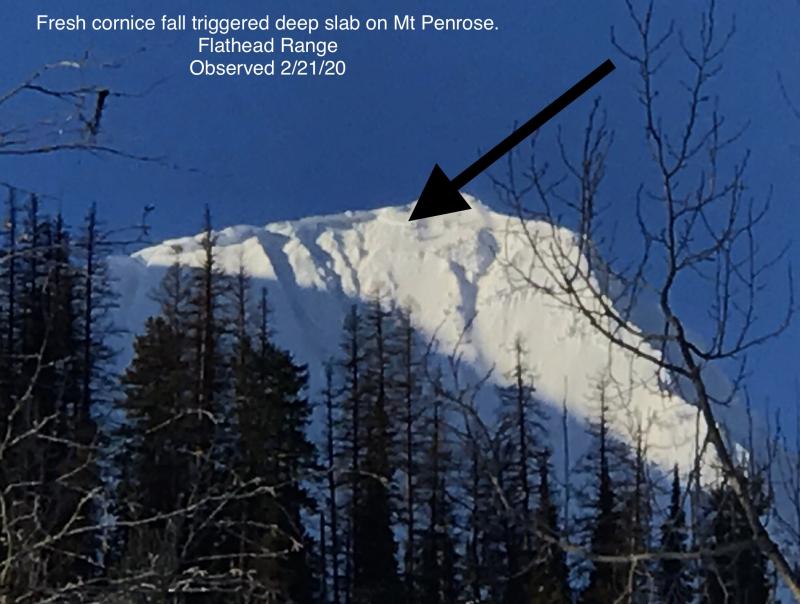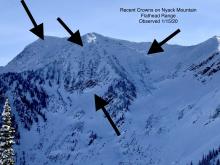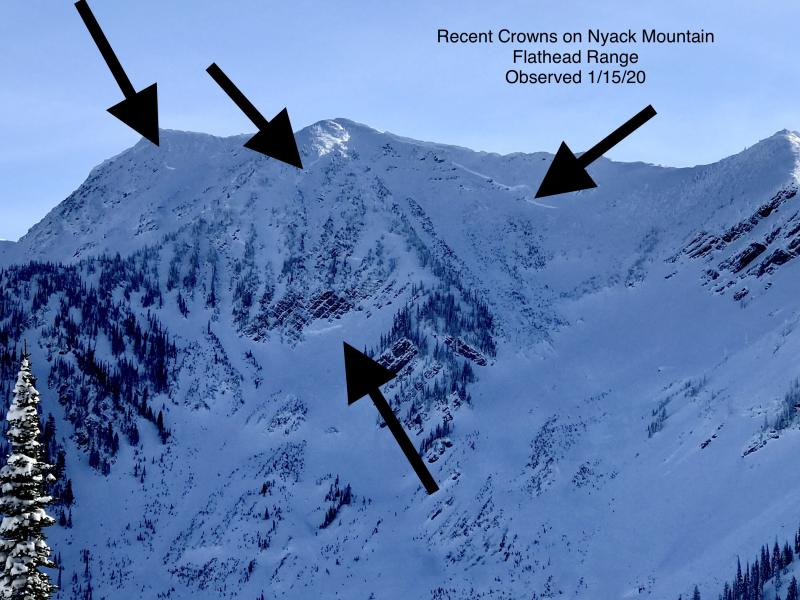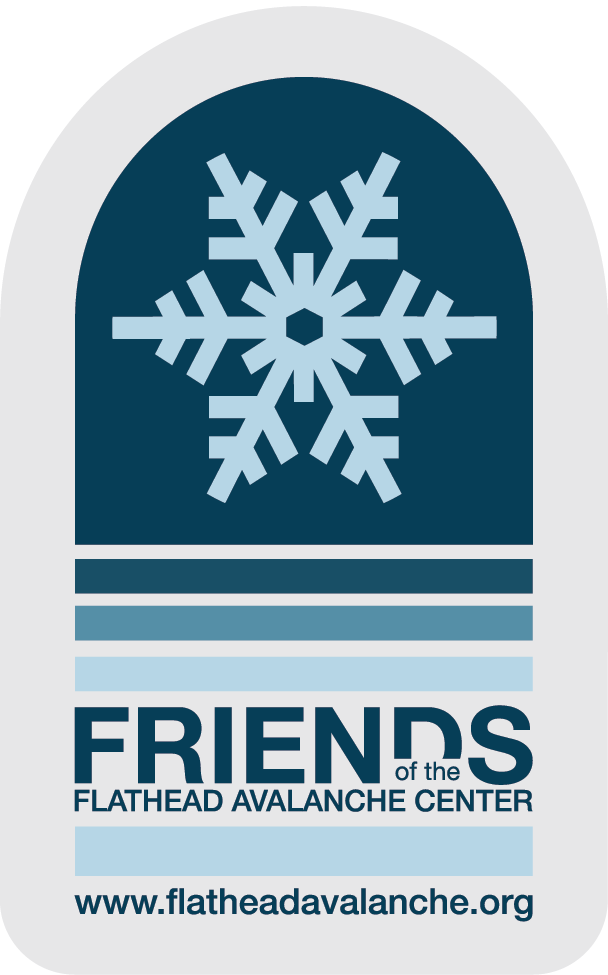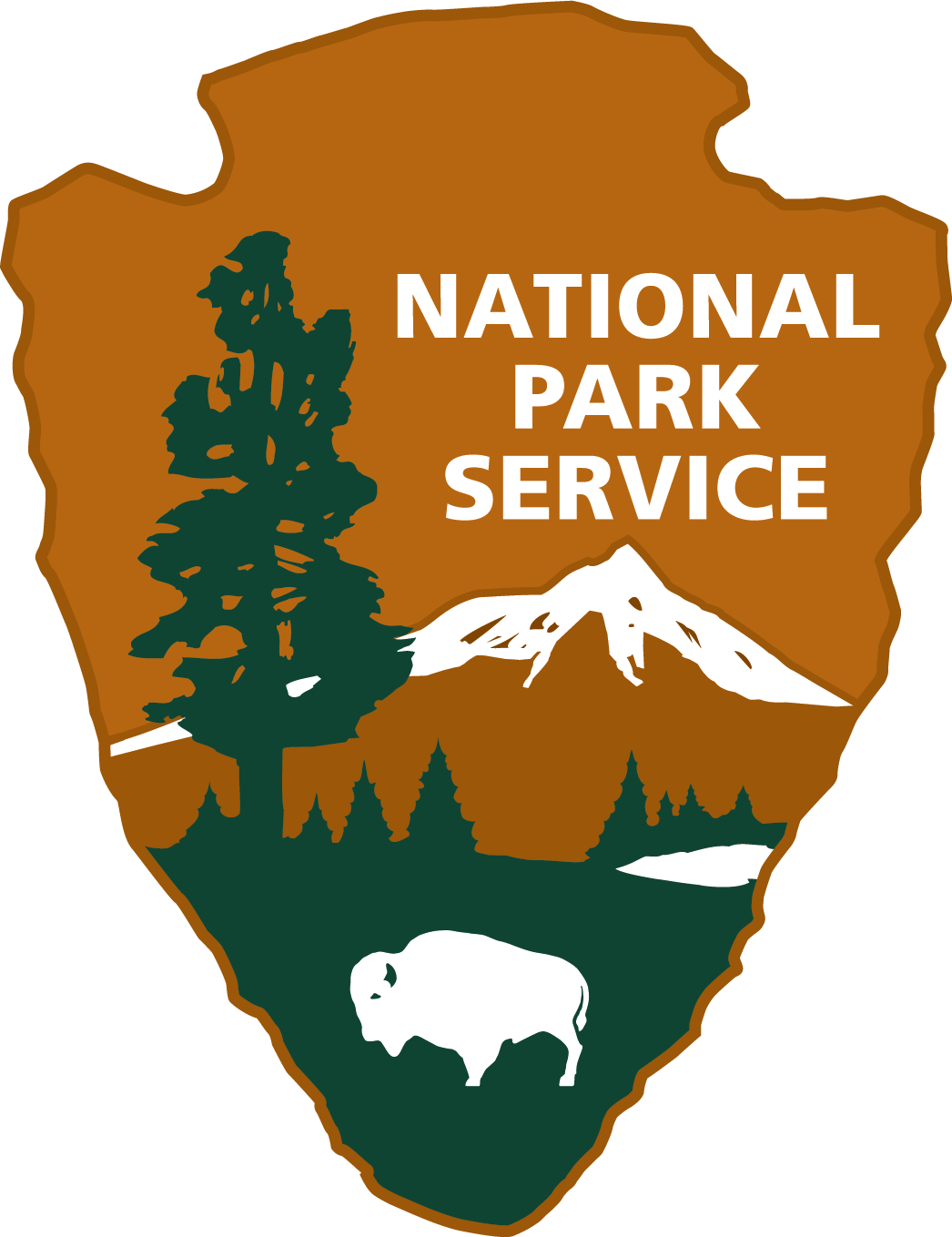| Thursday | Thursday Night | Friday | |
|---|---|---|---|
| Cloud Cover: | Mostly Clear | Mostly Clear | Mostly Clear |
| Temperatures: | 25 to 32 deg. F. | 10 to 15 deg. F. | 27 to 32 deg. F. |
| Wind Direction: | Southwest | Southwest | Southwest |
| Wind Speed: | 10G25 | 13G23 | 14G28 |
| Snowfall: | 0" in. | 0" in. | 0" in. |
| Snow Line: | 1500' | 1500' | 1500' |
Flathead Range and Glacier National Park
How to read the forecast
Warming temperatures and clear skies will increase the avalanche danger to Moderate throughout the day. Yesterday riders reported numerous loose dry and loose wet avalanches on south-facing slopes. Warmer and sunnier weather today will exacerbate this problem making wet loose avalanches and cornice falls more of a threat. Stick to cold powder on north-facing slopes while staying out from underneath overhead cornice hazards.
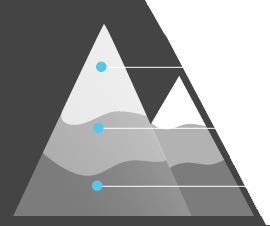
2. Moderate
?
Above 6500 ft.
2. Moderate
?
5000-6500 ft.
2. Moderate
?
3500-5000 ft.
- 1. Low
- 2. Moderate
- 3. Considerable
- 4. High
- 5. Extreme
-
Type ?
-
Aspect/Elevation ?
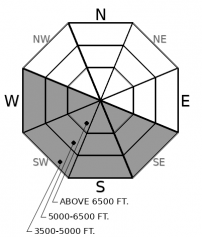
-
Likelihood ?CertainVery LikelyLikelyPossible
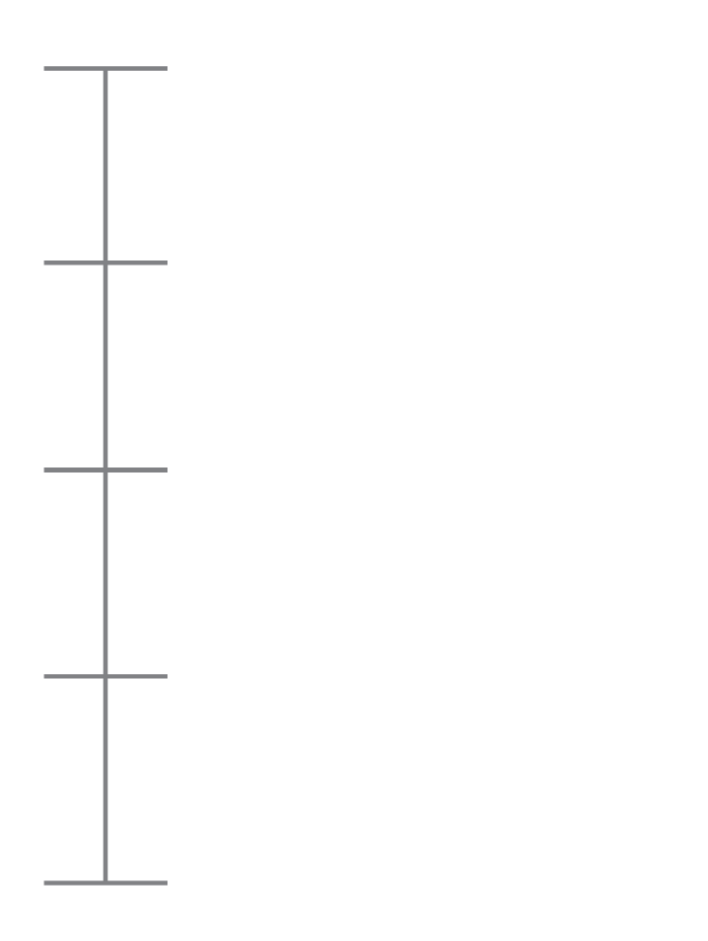 Unlikely
Unlikely -
Size ?HistoricVery LargeLargeSmall

Today will be the warmest and sunniest of the past three days making loose wet avalanches more of a threat on sun-baked slopes. Though we expect most of them to be relatively small, they will be more of a concern in longer running paths and areas where they can push you into a terrain trap. Snow falling out of trees and rocky areas exposed to the sun are areas that you will first see natural avalanche activity. This instability is easy to recognize and avoid: if you see rollerballs, pinwheels, or natural sluffs, move towards cold, dry snow on shady aspects.
-
Type ?
-
Aspect/Elevation ?
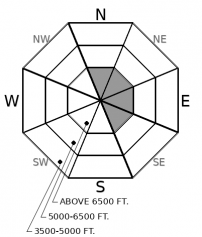
-
Likelihood ?CertainVery LikelyLikelyPossible
 Unlikely
Unlikely -
Size ?HistoricVery LargeLargeSmall

Observers continue to report large cracks on ridge lines where cornices are beginning to un-root themselves. There is a growing concern for large cornices to fail due to warm temperatures and sunshine. Cornice fall is an obvious and manageable hazard: plan your ascent and descent to avoid being underneath the overhanging school buses that can spontaneously fail and be highly destructive.
-
Type ?
-
Aspect/Elevation ?
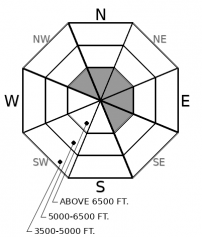
-
Likelihood ?CertainVery LikelyLikelyPossible
 Unlikely
Unlikely -
Size ?HistoricVery LargeLargeSmall

Deep slab activity has waned since a flurry of natural releases in early February. Although slides breaking on weak layers near the ground have become increasingly difficult to trigger, the consequences are unsurvivable. The pattern of deep slabs avalanches this winter has been confined to high alpine bowls and faces in the Flathead Range and Glacier Park on northerly and easterly aspects. Cornice falls are the most likely triggers. Choose routes that reduce your exposure to overhead hazards, including runout zones, and be cautious of alpine slopes with thin or variable snow coverage.
Yesterday, relatively cool temperatures and scattered cloud conditions minimized loose wet avalanche activity. Riders did report a mix of loose dry and loose wet avalanches, all spurred by solar gain. Avalanches were relatively harmless in size, but could prove to be consequential if they pushed you into a terrain trap. Watch the video below to see how Zach’s decision making kept him out of harm's way.
Weather stations from across our forecast area show that overnight temperatures sunk into the single digits, refreezing the snow surface on southerly aspects into a crust. This melt-freeze cycle on southerly aspects will help delay wet loose activity, but won't be enough to stop it from happening. We will likely see temperatures reach the low 30s at upper elevations with mostly clear skies, making ideal conditions to melt the crust, further wet the snow surface, and produce avalanches. This kind of weather pattern contributes to higher confidence in avalanche activity than in previous days.
Not only will the sun heat south-facing slopes, but it may also loosen large cornices that curl over the cold, north through southeast-facing slopes. In my travels yesterday in the Flathead Range, I was able to spot one recent cornice fall on the northeast face of Nyack Mountain. Though much of the time cornice failures are spontaneous, sunny and warm weather up their likelihood, making them more of a threat on a day like today. Keep in mind that these cornices lurk over the kind of terrain that has produced very large and destructive avalanches in areas of the Flathead Range and Glacier National Park. Though Deep Slab avalanche activity has been quiet since the first week of February, we remain uneasy about a massive cornice failure creating another Deep Slab avalanche.
Do you want to become a safer rider and a more reliable partner? Take a look at the list of avalanche classes below.
Upcoming Classes
Ladies Intro to Avalanche Class • This class, for skiers and snowboarders, is geared to help you recognize and understand obvious avalanche hazards through both a classroom and a field session. The course provides a brief introduction to avalanche statistics and human factors, terminology, terrain, snowpack and weather factors, trip planning and preparation, simple decision-making tools and backcountry travel protocols.
Thursday, February 27 from 6:00 to 9:00 PM and Saturday, February 29 from 9:30 AM to 4:00 PM. Sign up at here.
Companion Rescue Clinic • A rescue clinic that focuses on avalanche rescue skills for small recreational groups.
Saturday, March 7 from 10:00 AM to 4:00 PM. Sign up here.
Motorized Level One Class • The Level 1 avalanche course is an interactive program covering the fundamentals of avalanche hazards including awareness and stability assessments. During this three day class, gain a basic understanding of slab mechanics, terrain, snowpack and weather, decision support tools and rescue.
March 6-8 from 9:00 AM to 5:00 PM. Sign up here.
A high-pressure ridge settles in until Friday. Today, temperatures will hover in the low 30s at 6000 feet with mostly clear skies. The next round of precipitation and wind will enter our region late Sunday and into Monday.
This forecast applies only to backcountry areas outside established ski area boundaries. The forecast describes general avalanche conditions and local variations always occur. This forecast expires at midnight on the posted day unless otherwise noted. The information in this forecast is provided by the USDA Forest Service who is solely responsible for its content.

